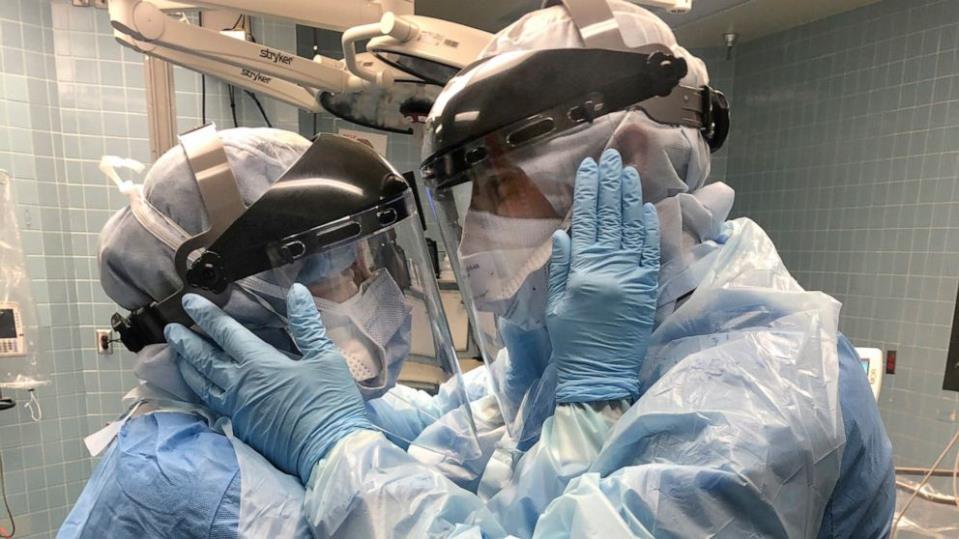Most front liners, as well as all residents and staff at care homes should get the Covid-19 vaccine in January, Deputy Prime Minister Chris Fearne said this evening.
Speaking in Parliament, Fearne said Malta has an agreement to procure 1.6 million doses from the three companies who are more advanced on the vaccine, and a further 700,000 doses from another three companies that require more time to produce it.
Malta, he said, was among a number of countries that started negotiating with the six companies. The European Commission has now taken over that process. Malta, he said, will have immediate access to the vaccine once it becomes available.
Pfeizer, Moderna and Astra Zenica are at a more advanced stage. Malta will be purchasing 1.6 million doses from them.
Malta ordered such a large number of doses so that if one company does not manage to provide the ordered number, we will still have enough, Fearne said.
The Pfeizer vaccine is expected to be authorised by 29 December, Moderna’s by 12 January and Astra Zenica’s at some point in February.

“We are basing our decisions on the procurement of the vaccine from Pfeizer and Moderna, first. When the others are in a position to provide the vaccine, our plans will be updated.”
The vaccines need to be kept at a certain temperature and the conditions of their transport is confidential, but Malta already has a plan in place for the keeping of the vaccine in cold stores. All shipments will have a GPS tracker and a temperature monitor, Fearne explained.
“Our priority was always to protect lives, and this will not change. Prioritisation will reflect this principle. First, we save lives and keep the health service going, and then we move to the community.”
The aim is to start the immunisation process as soon as the vaccine arrives, he said.
The plan is to give the vaccine to public and private healthcare workers in January, together with all staff and residents at care homes and all people aged 85 and over.
The remaining front liners and people over the age of 80 will receive the vaccine in February.

The next group will be people suffering from chronic conditions, school and childcare staff, and people over 70.
The next phase will be for people aged over 55, followed by vaccination for the general population.
Total immunisation depends on the speed in which the companies can produce and deliver the vaccine, Fearne said.
The vaccine will be free. The people in the first group will receive instructions by post. They will also be given a date for when to take the second dose. There will be a dedicated helpline.
There will be be an outreach team to administer the vaccine to people who, for some reason cannot leave their home.
The vaccine will not be mandatory but there will be an educational campaign on the importance of taking the vaccine, Fearne said.
Following the explanation of the Covid-19 vaccination plan, various Members of Parliament asked for further clarification on the subject.

PN MP Joe Ellis raised concern on the time taken by the European Commission to approve the Pfeizer vaccine. This concern comes after the British government approved the Pfeizer vaccine recently. Fearne responded by stating that the European institute testing the vaccine is going through a very rigorous process to assure everyone about the safety of the vaccine. This is the reason why the process is taking long, Fearne said.
Replying to a question by PN MP Kevin Cutajar, Fearne reassured that Gozo will have its own centre and arrangements are being made. The centres which are going to be used around Malta and Gozo will be existing health centres. Fearne explained that this is due to the fact that to keep the vaccine, it is very important that the parameters in which it is kept have to constantly be supervised, therefore the health centres are the best place to do so.
In response to PN MP David Thake’s question about the importance of reaching herd immunity, Fearne said that in order to achieve this, 70% of the population has to be vaccinated. Therefore, an educational campaign will be part of the vaccination campaign in order to reassure people on the safety of the vaccine and therefore as much people as possible are vaccinated.
PN MP Stephen Spiteri asked about the possibility of choosing other vaccine providers due to the immense logistical problems which the Pfeizer vaccine comes with. Fearne answered by saying that the most important factor is to get the vaccine and to start immunising people as soon as possible. This can only be done through the Pfeizer vaccine. Pfeizer as a company will be delivering the vaccine to Malta and due to its importance, the details of this process are confidential.